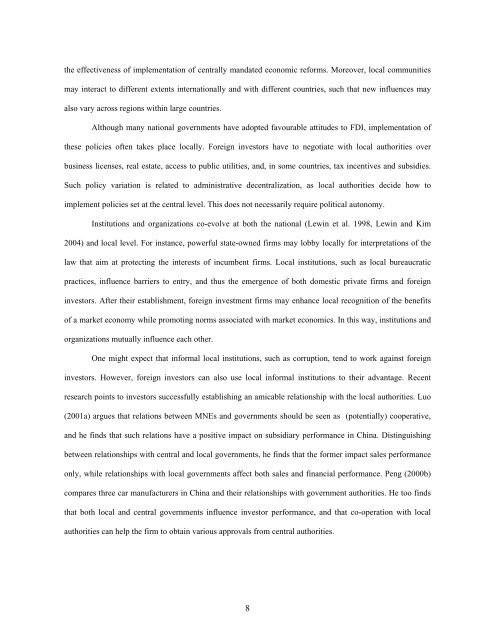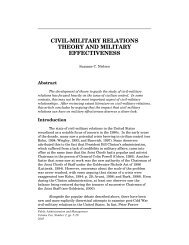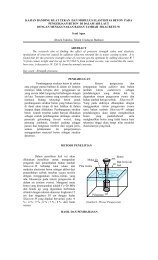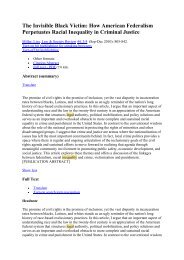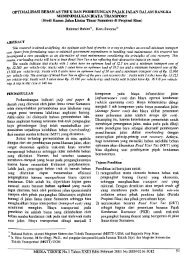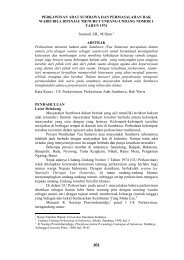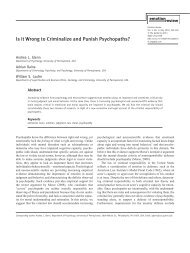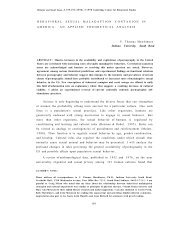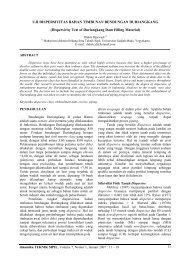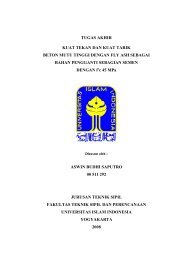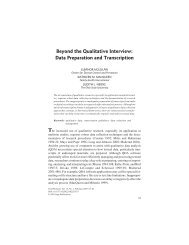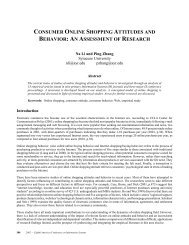Foreign Investment Strategies and Sub-national ... - E-Journal
Foreign Investment Strategies and Sub-national ... - E-Journal
Foreign Investment Strategies and Sub-national ... - E-Journal
Create successful ePaper yourself
Turn your PDF publications into a flip-book with our unique Google optimized e-Paper software.
the effectiveness of implementation of centrally m<strong>and</strong>ated economic reforms. Moreover, local communities<br />
may interact to different extents inter<strong>national</strong>ly <strong>and</strong> with different countries, such that new influences may<br />
also vary across regions within large countries.<br />
Although many <strong>national</strong> governments have adopted favourable attitudes to FDI, implementation of<br />
these policies often takes place locally. <strong>Foreign</strong> investors have to negotiate with local authorities over<br />
business licenses, real estate, access to public utilities, <strong>and</strong>, in some countries, tax incentives <strong>and</strong> subsidies.<br />
Such policy variation is related to administrative decentralization, as local authorities decide how to<br />
implement policies set at the central level. This does not necessarily require political autonomy.<br />
Institutions <strong>and</strong> organizations co-evolve at both the <strong>national</strong> (Lewin et al. 1998, Lewin <strong>and</strong> Kim<br />
2004) <strong>and</strong> local level. For instance, powerful state-owned firms may lobby locally for interpretations of the<br />
law that aim at protecting the interests of incumbent firms. Local institutions, such as local bureaucratic<br />
practices, influence barriers to entry, <strong>and</strong> thus the emergence of both domestic private firms <strong>and</strong> foreign<br />
investors. After their establishment, foreign investment firms may enhance local recognition of the benefits<br />
of a market economy while promoting norms associated with market economics. In this way, institutions <strong>and</strong><br />
organizations mutually influence each other.<br />
One might expect that informal local institutions, such as corruption, tend to work against foreign<br />
investors. However, foreign investors can also use local informal institutions to their advantage. Recent<br />
research points to investors successfully establishing an amicable relationship with the local authorities. Luo<br />
(2001a) argues that relations between MNEs <strong>and</strong> governments should be seen as (potentially) cooperative,<br />
<strong>and</strong> he finds that such relations have a positive impact on subsidiary performance in China. Distinguishing<br />
between relationships with central <strong>and</strong> local governments, he finds that the former impact sales performance<br />
only, while relationships with local governments affect both sales <strong>and</strong> financial performance. Peng (2000b)<br />
compares three car manufacturers in China <strong>and</strong> their relationships with government authorities. He too finds<br />
that both local <strong>and</strong> central governments influence investor performance, <strong>and</strong> that co-operation with local<br />
authorities can help the firm to obtain various approvals from central authorities.<br />
8


